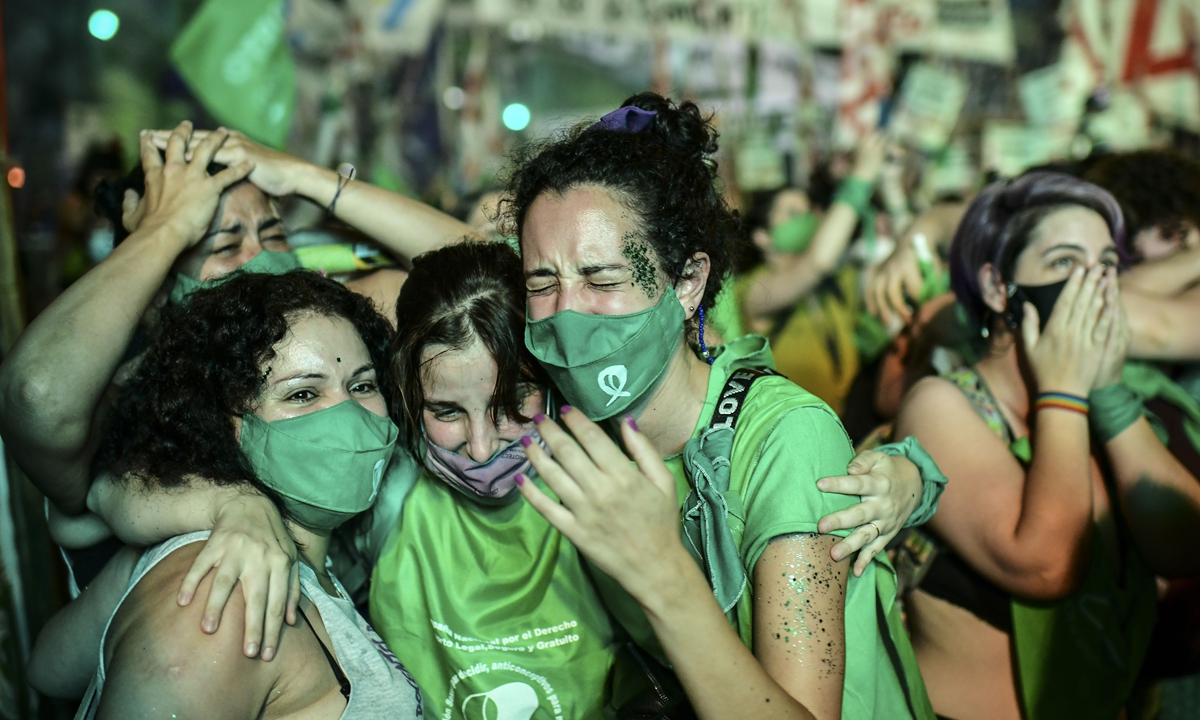Opposition deals blow to ruling Peronists ahead of ballot
Argentinian govt poll slump

Pro-choice activists go emotional after the Senate approved a bill to legalize abortion outside the Congress in Buenos Aires, Argentina on Wednesday. Photo: AFP
Argentina's main opposition party landed a blow against the ruling Peronists on Sunday, winning key races in a congressional primary vote that is a strong leading indicator of how voters will cast ballots in the midterm election in November.The conservative opposition led by around 5 percentage points in the key province of Buenos Aires, with some 84 percent of votes tallied in the populous region that has been a bastion of support from the center-left government of Alberto Fernandez.
Other results in the mandatory vote showed the ruling party falling back, which if repeated in the November 14 election could see the government lose its majority in the Senate and risk its largest minority position in the lower Chamber of Deputies.
"The ruling party lost 1.2 million votes compared to the 2019 [presidential election]; this brings them to a level that, if repeated in November, leaves Alberto Fernandez very weakened," said Mariel Fornoni, director of consultancy Management and Fit.
With most candidates already set, the open primary vote acts as a nationwide dress rehearsal ahead of the November 14 midterm ballot, where 127 seats in the Chamber of Deputies are up for grabs out of a total of 257, as well as 24 seats out of 72 in the Senate.
Many voters feel let down by the main political parties. A lengthy recession, rampant inflation and a poverty rate that has risen to 42 percent have hurt public support for the government, despite recent signs of an economic recovery and falling coronavirus cases.
"There is great discontent among people," Patricia Coscarello, a 52-year-old administrative worker outside Buenos Aires, said after she voted.
"Apart from the pandemic, the economic situation is complex and salaries are shrinking."
Fernandez can point to a vaccine rollout that has now reached more than 46 million inoculations for a population of a similar size, falling daily COVID-19 cases and the economy's emergence from recession earlier 2021 after a plunge in 2020.
"Obviously some things we haven't done well because the people haven't accompanied us as we would have hoped," President Fernandez said.



